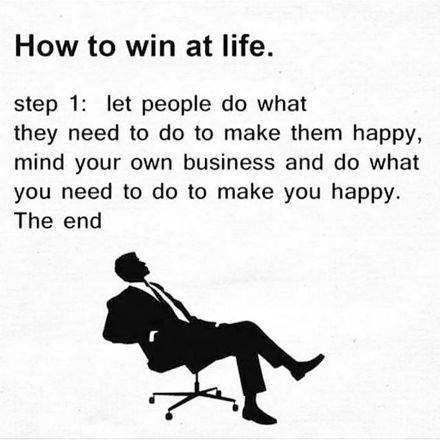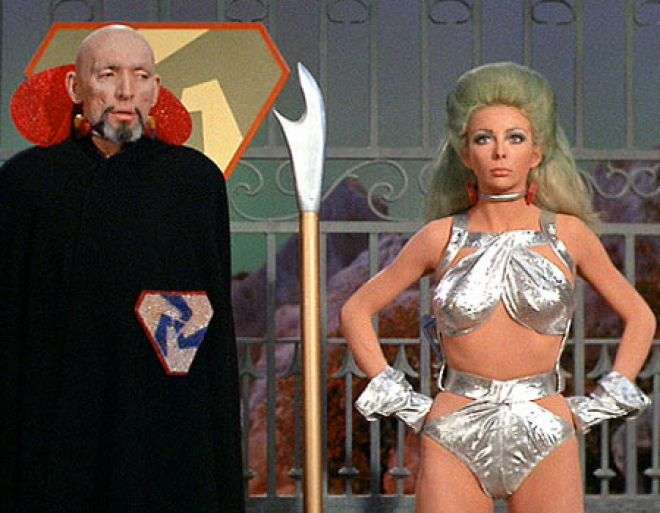This question on Quora intrigued me, not quite so much because of the educated-above-their-hat-size, “solve all the world’s problems while we still know everything,” seldom-correct never-in-doubt sophistikateds that talk with smiles on their faces & their eyes closed; that’s a Quora staple right there. Rather, I was taken by the unusual experience. You have to read down quite a way to see it, but the answers under this one constitute a healthy mix. Eventually someone with good old-fashioned horse sense weighs in on the issue…yeah. Someone must’ve forgotten to close a door or something.
The answer most representative of the average floats toward the top, and reads like this; the number in agreement is so overwhelming, after awhile you wonder if it’s worth your while to read all the others…that, too, is a typical experience on Quora…
Conservatism, by definition, is about maintaining the status quo. For typical young people, using the US as a benchmark, the status quo isn’t that good. Their interests are thus best served by change, and change is a progressive or left wing thing. They came of age during the right wing G. W. Bush era, with its war mongering, governmental incompetence, crony capitalism, growing economic inequalities, and to cap it all off, a severe economic downturn that has left the employment and financial prospects of Millennials in dire straits compared to prior generations.
And they came of age during the internet era, so unlike prior generations who had to rely on the establishment’s media gatekeepers of TV and newspapers for information, younger people today grew up with ready access to information that directly contradicts shibboleths that prior generations took for granted. So they are far more inclined to question things and challenge the status quo.
The irony is, of course, that this all indicative of an under-challenged, and altogether unchallenged, status quo. “The status quo is not good and we need change,” George W. Bush is a warmonger, economic inequality, blah blah blah…same with the doddering oldsters relying on insufficiently diverse “media gatekeepers” for information, and the young, intellectually nimble New Hotness taking charge, armed with their dazzling array of learning resources.
We’ve seen it all before. And also, bushels and bushels of snooty condescension. Don’t forget that:
The entire world is moving progressively toward more comprehensive welfare states. The era in which it’s OK for a government to let its own people freeze or starve is coming to an end. This is right and proper.
It all seems just so correct and reasonable. Until you stop to think — just how current are these ideas, which are ushering in this bold new age? And the answer is, not very. Discarding phrasing styles and words that have only recently come into existence or fashion, like “[I]nternet,” this all could’ve been written in…well, just about any year from 1917 onward. The overall sentiments of progressivism have remained unchanged in all that time. We’re battling these “conservatives,” who want to keep things the way they are, but our victory is inevitable, because we’re for sharing and economic equality, and the old bastions of stodgy traditionalism favor inequality, but the world is changing. There isn’t a thought in there that’s less than a century old. And the basics of it are considerably older than that…again, still unchanged.
As I’ve noted before, the terms “conservatism” and “liberalism” work much better when you think about it in terms of creation, preservation and destruction. To say, “conservatism is all about what came before and liberalism is all about what’s coming” gels with a lot of definitions that are written and spoken, but those definitions are incorrect a good portion of the time; just as you’d be incorrect a good portion of the time if you said, “East is whichever way my boat is headed (so I don’t need a compass).” The modern era has seen a lot of retreats from liberalism, in other countries as well as in the USA. It happens whenever people figure out liberalism is incompatible with freedom, opportunity, prosperity and stability — which is often. That is somewhat akin to a boat righting its course after heading into the wrong direction, at which time it would be incorrect to say “East is wherever the bow points.” Sure you could say it. But you’d be wrong.
A lot of people are wrong about this. Many among them cling to this fantasy…this old (!) fantasy…that the younger generation, manifested by themselves, is on to some hot new idea and is in the midst of re-making the world around them into it. It does not seem to slow them down, even a smidgen, that they can’t name anything actually, provably new about the idea.
Still, the original question remains. Young people and old people do not look at property rights the same way. This old duffer nailed it, I thought:
Probably, because in order to be conservative you first need to acquire something worth conserving, and that takes time.
Probably, because in order to be conservative you first need to understand how society works, and in order to do that, you have to accumulate enough experience to figure out that your political science teachers were shameless lefty demagogues.
And another one made a good point:
Having trouble getting their first full time job when they get out of school makes people more likely to be a eoconomic liberal. That is they reject the conservative claim that to be unemployed means you’re lazy not unlucky. The generation that came of age since 2000 and especially since 2008 had a lot of trouble getting any job let alone a good one. However I question that they are really socialist any more than the peope who came of age during the1930s were.
This inspires some share of depression, I must say. Young people start working, or trying to anyway, and discover that it isn’t always immediately gratifying. Many among them, I suspect, through this initial effort are forced to cope with prolonged discouragement for the first time in their short lives. If the resulting frustration has a tendency to incline them toward left-wing politics, and I find that quite credible, that would mean it is to the left-wing politician’s advantage to make this experience more discouraging. What evidence is there to suggest this is not the case? And if it is the case, what evidence is there to suggest our left-wing politicians haven’t figured this out already, and are in fact acting on it, doing whatever they can to make it less likely that the average business will go so far as to actually hire someone?
I see precious little evidence to refudiate this…and much to support it…









 What is left to trouble me, then? I have lots of friends who will line up to ply me with all of Trump’s shortcomings, how he’s “just as bad as, if not worse than, Hillary” — but that’s bull. They’ve allowed their hyperbole to run away with them. I’ve availed them of every opportunity to prove otherwise, and no, there are no fortifying specifics behind such a silly statement. Hillary’s worse, and they’ve made the mistake of taking their eyes off the prize. I’m much more troubled by the idea that Trump could still lose, than that he could win.
What is left to trouble me, then? I have lots of friends who will line up to ply me with all of Trump’s shortcomings, how he’s “just as bad as, if not worse than, Hillary” — but that’s bull. They’ve allowed their hyperbole to run away with them. I’ve availed them of every opportunity to prove otherwise, and no, there are no fortifying specifics behind such a silly statement. Hillary’s worse, and they’ve made the mistake of taking their eyes off the prize. I’m much more troubled by the idea that Trump could still lose, than that he could win. As far as this recognition that a “higher standard,” or something, is good for society. I agree. It’s one of my
As far as this recognition that a “higher standard,” or something, is good for society. I agree. It’s one of my  They just wanted to be socially conscientious progressives, I’m sure. Well, they nuked the spiritual essence of a beloved and revered cultural tradition when they did that…which is what progressives do. So, we’ve got this huge tub full of good-hearted people wearing uniforms, being very careful not to go faster than Warp 5 so they don’t break anything? What’s the point?? How about…just not go? Starting with the premises provided, that is where common sense goes.
They just wanted to be socially conscientious progressives, I’m sure. Well, they nuked the spiritual essence of a beloved and revered cultural tradition when they did that…which is what progressives do. So, we’ve got this huge tub full of good-hearted people wearing uniforms, being very careful not to go faster than Warp 5 so they don’t break anything? What’s the point?? How about…just not go? Starting with the premises provided, that is where common sense goes. One of the worst things to happen to cars was the automatic transmission. Women love it because it makes driving easier. Men, real men, despise automatic transmissions, because a manual stick shift gives you more control, more options, more capability, and most important, it is the driver not the car who decides when to change gears, and that is the essence of independent manhood…
One of the worst things to happen to cars was the automatic transmission. Women love it because it makes driving easier. Men, real men, despise automatic transmissions, because a manual stick shift gives you more control, more options, more capability, and most important, it is the driver not the car who decides when to change gears, and that is the essence of independent manhood… What you’re left with is a somewhat gender-neutral culture conflict. That’s why I like this thing about “women feel free when they are secure, and men feel secure when they are free.” Because today’s men are assuming woman-like preferences for things, and today’s women are filling the void in masculinity themselves, you have to add “and some men” and “and some women” into that to keep it accurate. But there’s your cultural divide. And I would go further to, just like working the reduction operation in a division equation involving two fractions, simplify it a bit: Security and opportunity. Who among us is prepared to offer up a some of one of those, in exchange for a bit more of the other? I would opine, everyone with a brain. But which is to be sacrificed for which? There’s your divide.
What you’re left with is a somewhat gender-neutral culture conflict. That’s why I like this thing about “women feel free when they are secure, and men feel secure when they are free.” Because today’s men are assuming woman-like preferences for things, and today’s women are filling the void in masculinity themselves, you have to add “and some men” and “and some women” into that to keep it accurate. But there’s your cultural divide. And I would go further to, just like working the reduction operation in a division equation involving two fractions, simplify it a bit: Security and opportunity. Who among us is prepared to offer up a some of one of those, in exchange for a bit more of the other? I would opine, everyone with a brain. But which is to be sacrificed for which? There’s your divide. I guess I’m more annoyed — and on occasion, more annoying — than most because of my profession. Most gratifying part of my job is when I get to design how a new software module is going to work, and I’ve achieved some measure of success here by sticking to my old credo of: Keep the humans doing what humans should be doing, and the machines doing what the machines should be doing. That’s served me very well. But, by going through that cycle to earn my next loaf of bread, I’ve become aware of a type of human that — who? or maybe “that” is appropriate in this case — doesn’t mind doing machine work, not even a little tiny bit. Doesn’t mind being replaceable, doesn’t think about it.
I guess I’m more annoyed — and on occasion, more annoying — than most because of my profession. Most gratifying part of my job is when I get to design how a new software module is going to work, and I’ve achieved some measure of success here by sticking to my old credo of: Keep the humans doing what humans should be doing, and the machines doing what the machines should be doing. That’s served me very well. But, by going through that cycle to earn my next loaf of bread, I’ve become aware of a type of human that — who? or maybe “that” is appropriate in this case — doesn’t mind doing machine work, not even a little tiny bit. Doesn’t mind being replaceable, doesn’t think about it. And yet when the year number is divisible by 4, somehow this all changes. A non-politician as our President? Gasp! The horror! I’ve seen this in midterms, too; in 2010, I had noticed
And yet when the year number is divisible by 4, somehow this all changes. A non-politician as our President? Gasp! The horror! I’ve seen this in midterms, too; in 2010, I had noticed